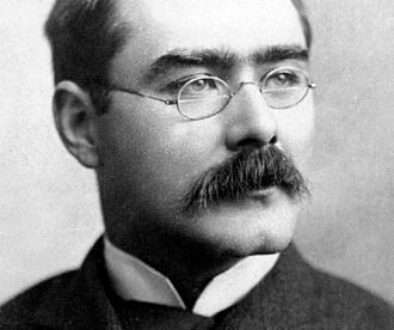The Destructiveness of Greed
Menanteau Serfontein – 27 August 2021
Greed (or avarice) is an excessive, uncontrolled, insatiable, selfish desire for increase in the acquisition or use of material gain (be it money, land, or possessions); or social gain, such as status, power or fame. There is a burning desire to acquire much more than you need or more than your fair share.
Some of the synonyms of greed include extreme acquisitiveness, covetousness, possessiveness and materialism. In my opinion, greed, selfishness, pride, haughtiness, and lust for power, status and fame often go hand in hand, but in this Article I am focusing almost exclusively on “greed”.
“Greed is a bottomless pit which exhausts the person in an endless effort to satisfy the need without ever reaching satisfaction.” ― Erich Fromm, Social Psychologist, Psychoanalyst, Sociologist and Philosopher
Typically, greed results in an endless pursuit of more and more gain – “enough is never enough”. The pursuit is not aimed at meeting needs, but it becomes a goal in itself. As soon as the one target has been met, the next goal is set.
Greed can become an addiction which is extremely difficult to overcome. Greed usually leads to all sorts of temptations and it is often allowed to overtake one’s values and principles. What started off as an innocent creation of wealth to cater for the needs of one’s family, evolves into an insatiable multiplication of wealth for its own sake.
Many of us are aware of instances of wealthy people who are caught up on this never-ending treadmill of increasing the size of their wealth. They have more than enough, but want more and more. They dedicate most of their life to this continuous pursuit, often resulting in them neglecting other important aspects of their life such as their marriage, children, family, friends, relationships, spiritual life, work-life balance, physical health and mental health. Everything is measured in terms of money. Their whole world revolves around material things and there is little interest in living their lives in accordance with sound virtues, values and principles. Neither do they make the effort to ensure their children internalize sound values and principles. Their children are spoilt and have everything that money can buy, but they are absent from their lives and spend very little quality time with them. There are numerous high-profile examples of movie stars, sports stars, business people, politicians, etc who are super wealthy, but their lives are in a mess – a painful vivid example that money cannot buy lasting true joy/happiness, love and peace.
The need to reject and avoid greed is easier said than done. The reality is that the most successful economic system in the world, i.e. Capitalism (the free-enterprise system), is driven by man’s inherent propensity for greed. Universities and textbooks teach that the purpose of a business is to maximize profit and at the very least to achieve “real growth” in earnings (i.e. returns above inflation) on a continuous basis year after year. The competition is relentless and if your business underperforms compared to the rest, investors sell their shares in your business and invest it elsewhere where the returns are higher.
As a secular psychological concept, greed is an inordinate desire to acquire or possess more than one needs. The degree of this compulsive desire, is related to the inability to control the reformulation of “wants“, once desired “needs” are eliminated.
Ancient views of the existence and pitfalls of greed abound in nearly every culture throughout history, such as Classical Greek thought in some of the writings of Plato and Aristotle. One of the concerns is that greed creates behaviour-conflict between personal and societal goals. Greed is also regarded as worshipping mammon, i.e. the obsessive pursuit of money and material wealth, often associated with the greedy pursuit of gain. This unhealthy pursuit of wealth could be carried out with complete honesty and integrity, but it is often associated with dishonest and unjust means.
A tremendous amount has been said and written about the dangers, pitfalls, temptations and destructiveness associated with greed. Below are just some examples of what economists, philosophers, psychologists, authors and theologians have said:
“Greed, envy, sloth, pride and gluttony: these are not vices anymore. No, these are marketing tools. Lust is our way of life. Envy is just a nudge towards another sale. Even in our relationships we consume each other, each of us looking for what we can get out of the other. Our appetites are often satisfied at the expense of those around us. In a dog-eat-dog world we lose part of our humanity.” ― Jon Foreman
“He who is not contented with what he has, would not be contented with what he would like to have.” ― Socrates
In his essay “Utilitarianism”, the Philosopher John Stuart Mill writes the following about the greed for money: “The love of money is not only one of the strongest moving forces of human life, but money is, in many cases, desired in and for itself; the desire to possess it is often stronger than the desire to use it and goes on increasing when all the desires which point to ends beyond it. … It may then be truly said, that money is desired not for the sake of an end, but as part of the end. From being a means to happiness, it has become in itself a principal ingredient of the individual’s conception of happiness. The same may be said of the majority of the great objects of human life— for example power or fame; except that to each of these there is a certain amount of immediate pleasure annexed, which has at least the semblance of being naturally inherent in them; a thing which cannot be said of money.”
There are of course opposite views, e.g. Ivan Boesky, the American Investment Banker who was convicted of insider trading in 1986, notoriously defended greed in a commencement address at the UC Berkeley’s School of Business Administration on 18 May 1986, in which he said, “Greed is all right, by the way. I want you to know that. I think greed is healthy. You can be greedy and still feel good about yourself”. This speech inspired the 1987 film “Wall Street”, which features the famous line spoken by the fictional character Gordon Gekko: “Greed, for lack of a better word, is good. Greed is right, greed works. Greed clarifies, cuts through, and captures the essence of the evolutionary spirit. Greed, in all of its forms; greed for life, for money, for love, knowledge has marked the upward surge of mankind.”
Below are some of the scriptures contained in the Bible about greed:
“No one can serve two masters. Either you will hate the one and love the other, or you will be devoted to the one and despise the other. You cannot serve both God and mammon” (money, possessions, fame, status, or whatever is valued more than God). ― Matthew 6:24
6 “…. godliness with contentment is great gain. 7 For we brought nothing into the world, and we can take nothing out of it. 9 Those who want to get rich fall into temptation and a trap and into many foolish and harmful desires that plunge people into ruin and destruction. 10 For the love of money is a root of all kinds of evil. Some people, eager for money, have wandered from the faith and pierced themselves with many griefs.” ― 1 Timothy 6:6-7; 9-10
“Then he (Jesus) said to them, “Watch out! Be on your guard against all kinds of greed; life does not consist in an abundance of possessions.” ― Luke 12:15
As it is written in 1 Timothy 6:17-19: 17 “Command those who are rich in this present world not to be arrogant nor to put their hope in wealth, which is so uncertain, but to put their hope in God, who richly provides us with everything for our enjoyment. 18 Command them to do good, to be rich in good deeds, and to be generous and willing to share. 19 In this way they will lay up treasure for themselves as a firm foundation for the coming age, so that they may take hold of the life that is truly life.”
My view is that there is nothing wrong in being wealthy, provided your wealth is acquired with complete honesty and integrity – without wickedness, bribery, corruption, dishonest/unjust gain, lying, deceit, not paying taxes and not at the expense of others. In addition, don’t worship your wealth instead of worshipping God. If, by the grace of God, you are blessed with wealth, don’t be selfish and hoard it. Don’t be a miser, but on the other hand, don’t spend recklessly and squander what you have. Be generous, especially towards the poor who are in need through no fault of their own.
We must guard against laziness and the folly of not taking responsibility, because it usually leads to poverty. Instead, I support the concept of hard work and using, applying and developing your talents to the best of your ability. At the same time, endeavour to be a wise steward of the resources that you are a custodian of. If at all possible, rather live below your means in order to grow a nest egg for a rainy day and not to become a burden on the state or on other people as you grow old.
All of us should do our utmost to avoid greed and thereby avoiding the snares, pitfalls, temptations and destructive consequences flowing from it.
“For what does it profit a man to gain the whole world and forfeit his soul?” ― Mark 8:36






